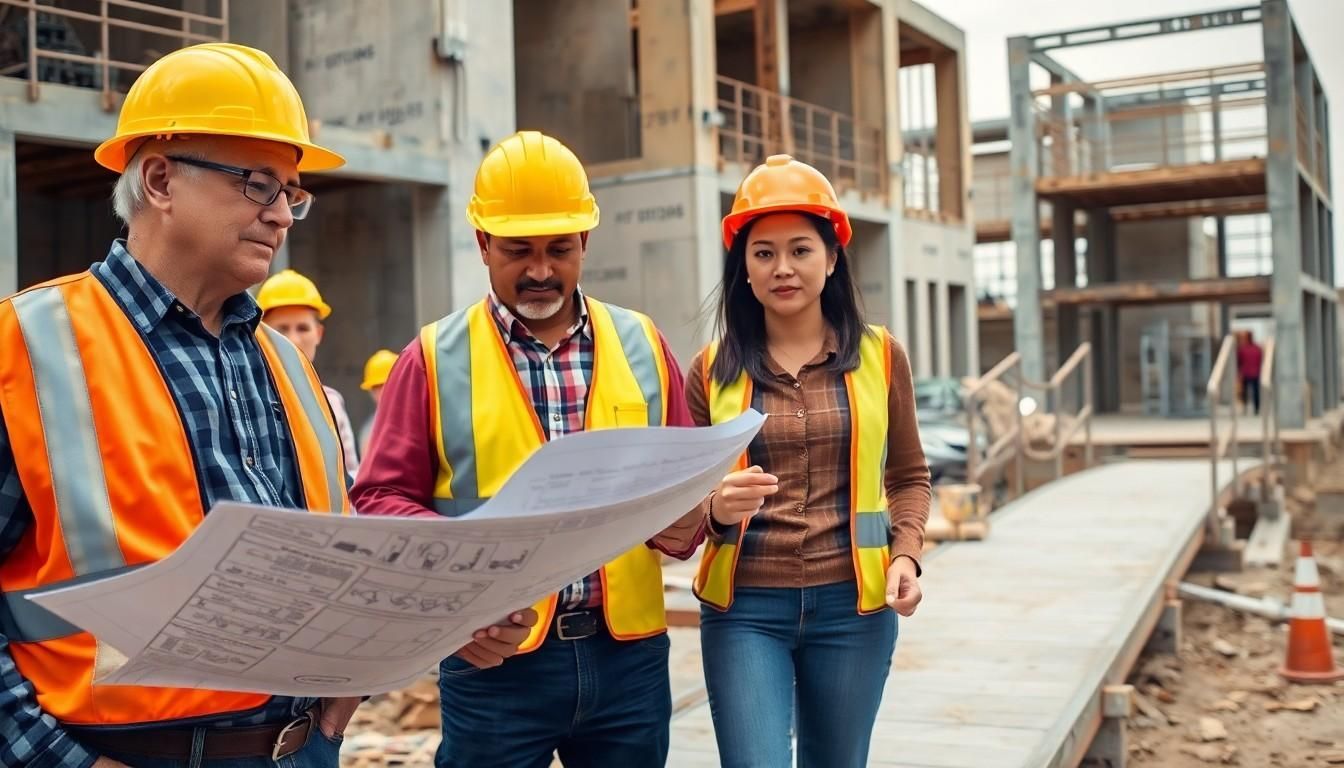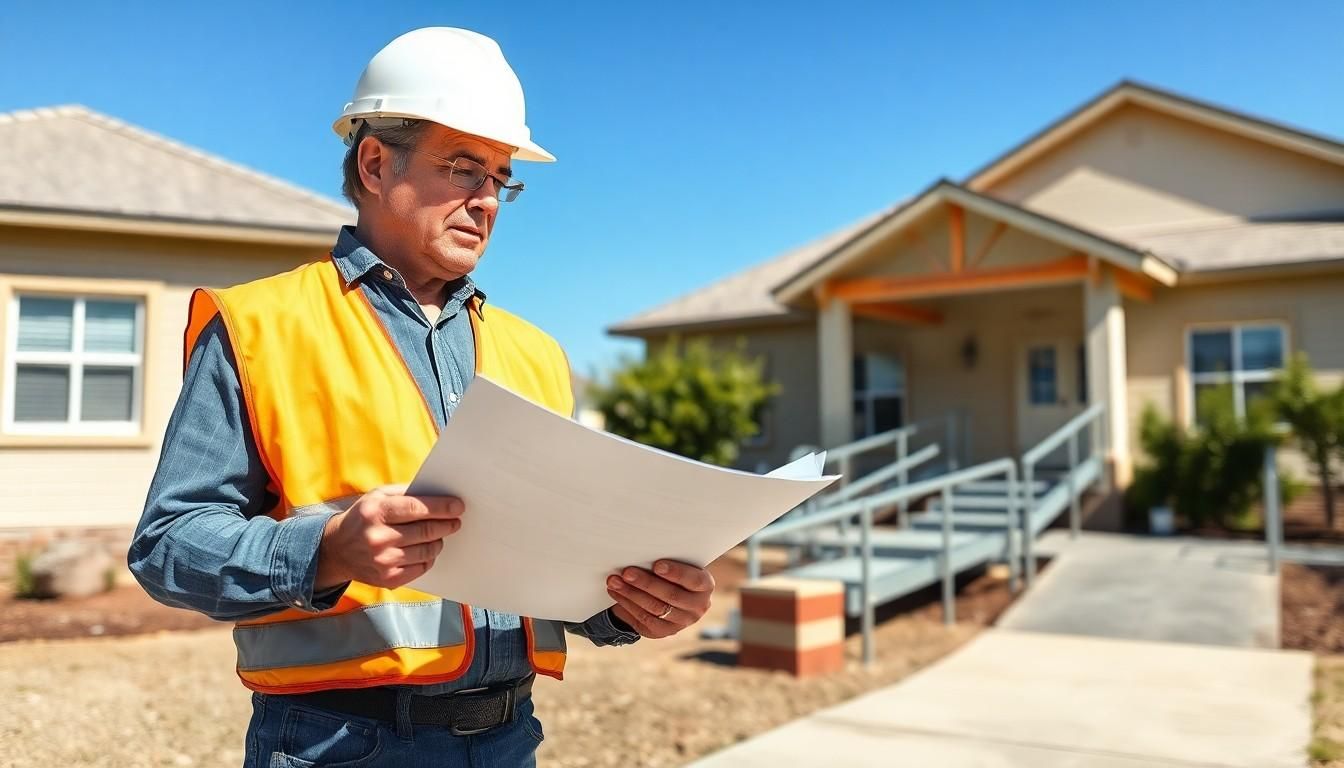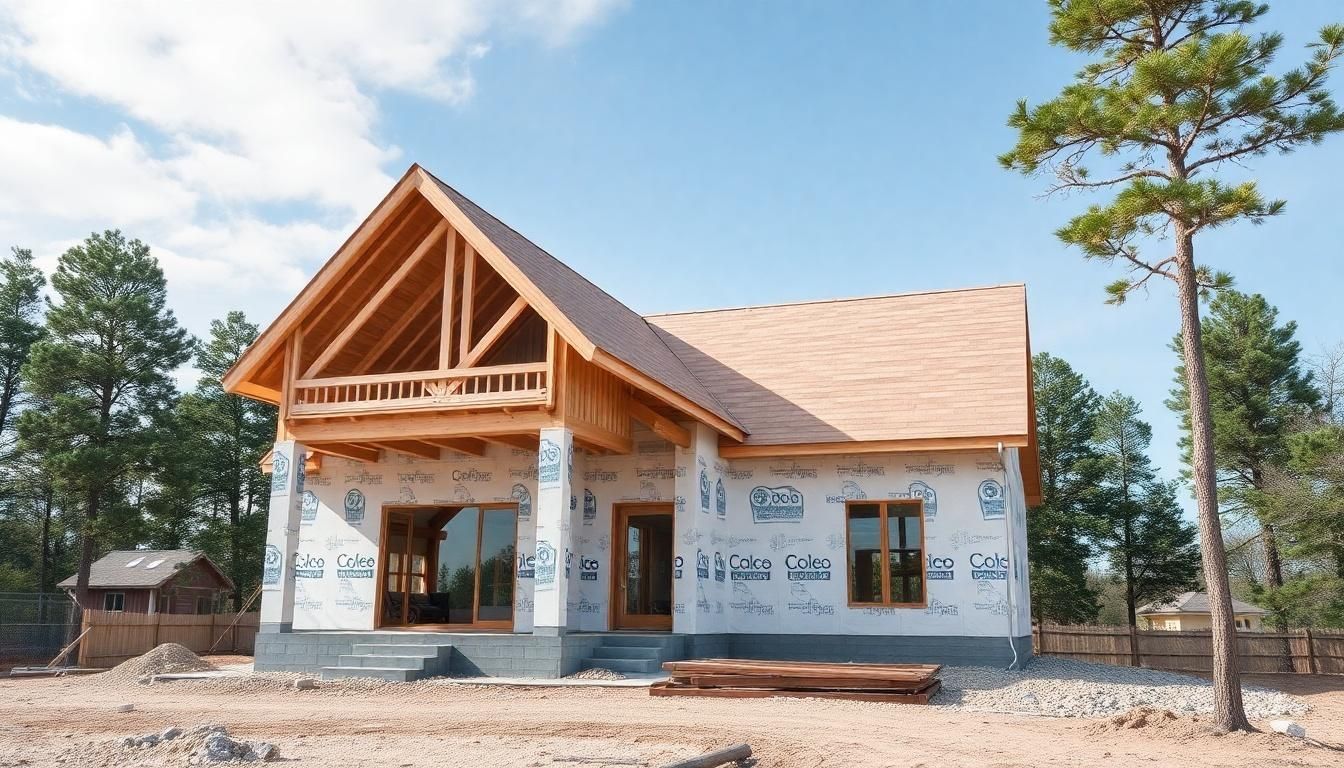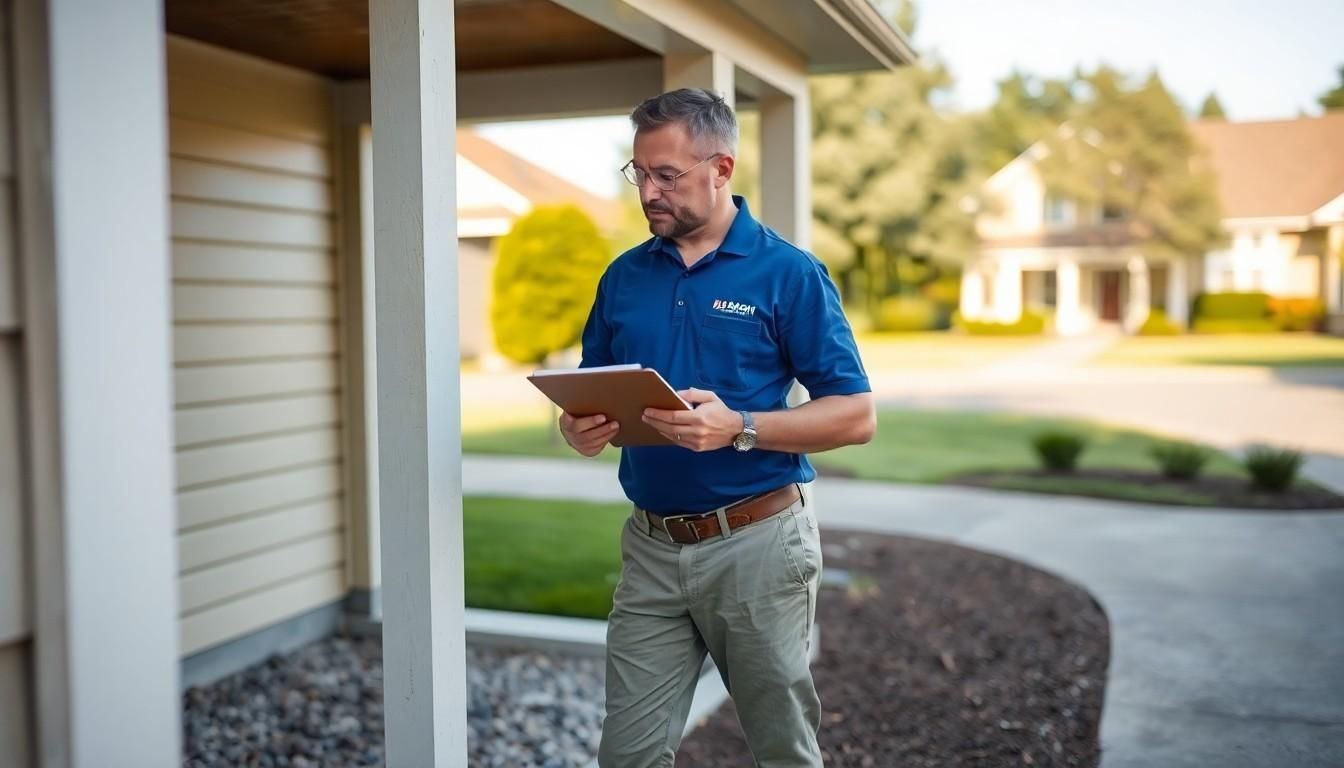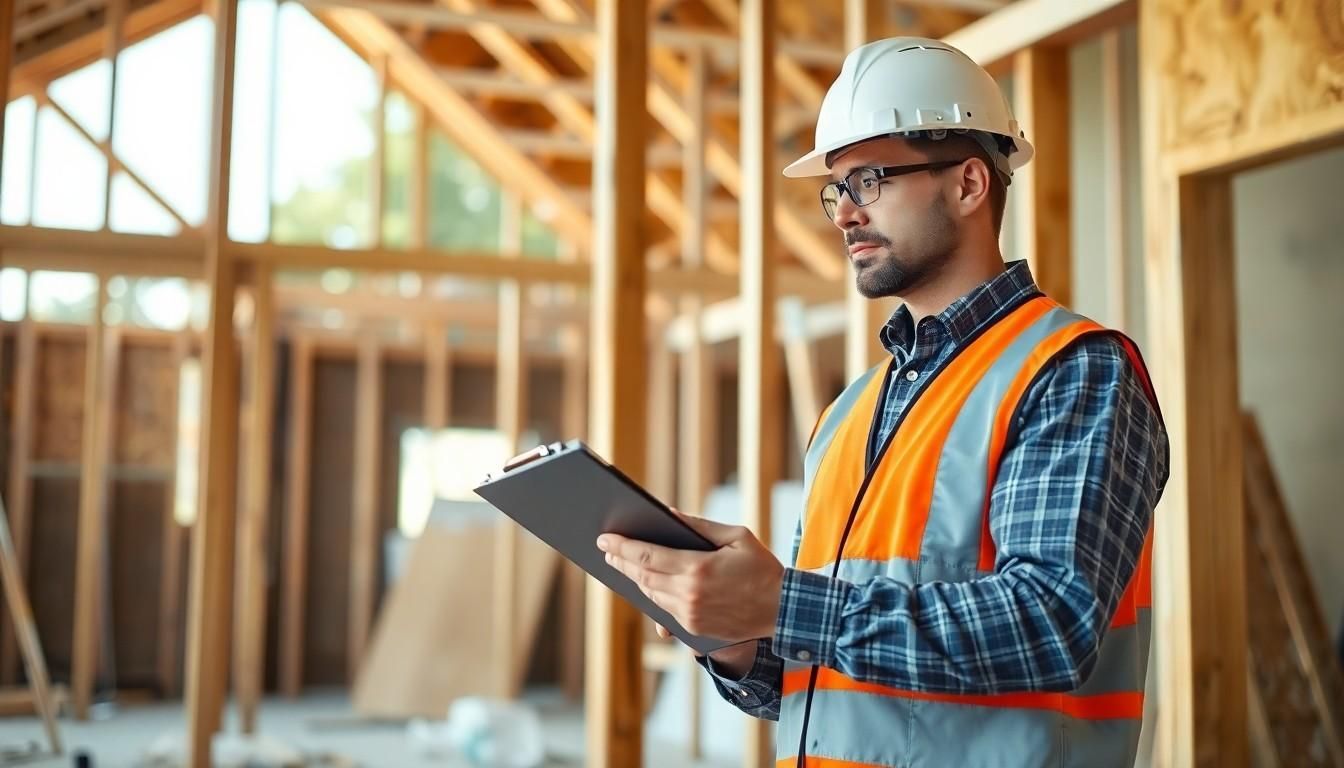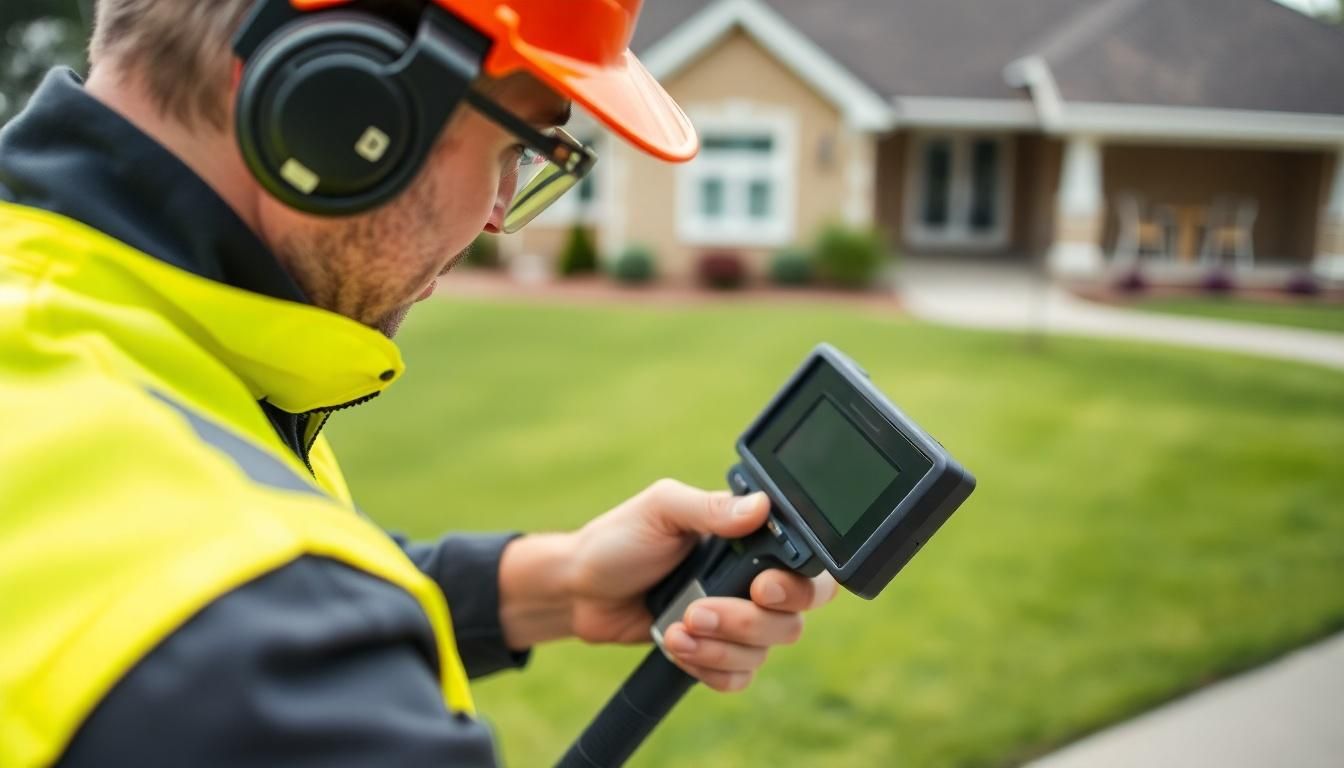The Benefits of a Thorough Home Inspection Revealed
- Structural assessments during home inspections ensure safety and protect investments.
- Common issues found include foundation cracks, roof damage, faulty wiring, and mold.
- Early detection of issues saves money and maintains property value.
- Inspections comply with safety standards, identifying hazards like electrical faults and gas leaks.
- Benefits include identifying maintenance needs, avoiding unexpected repairs, and enhancing resale value.
- Inspection findings can lower home insurance premiums.
- Certified inspectors provide reliable evaluations, safeguarding investments.
- Recognized credentials include CMI®, IAC2, and ASHI.
- Inspections can be scheduled flexibly to accommodate buyers.
Are you confident your home is safe and sound? Many property owners overlook crucial structural integrity issues, risking costly surprises down the line. A meticulous home inspection provides peace of mind by detecting potential problems like foundation cracks and faulty wiring. Such evaluations are more than just a formality—they are a vital investment in your property's future.
They not only safeguard against unexpected repair bills but also ensure compliance with safety standards, boosting property value. Understanding these benefits will significantly enhance your approach to maintaining a secure and efficient home. Dive into the full article to uncover these insights.
Uncovering Structural Integrity Through Home Inspections
Understanding structural assessments is vital during home inspections. These assessments are crucial for safety and protecting investments. Inspectors examine a property's structural integrity, identifying issues often missed in casual walkthroughs. This includes hidden damage like foundation cracks, roof repairs, or faulty wiring. Addressing these issues protects the property from future damage that could threaten safety and value.
Common Issues Found in Inspections:
- Foundation cracks
- Roof damage
- Faulty wiring
- Water intrusion in basements
- Structural wood rot
Detecting structural issues early saves money. Fixing problems before they worsen is more economical. For instance, repairing a small foundation crack prevents larger, costly damages to the home's stability. Fixing wiring early can prevent electrical hazards, protecting the home and its inhabitants. Investing in detailed inspections helps homeowners avoid unexpected repairs and maintains property value.
Ensuring Safety with Home Inspections
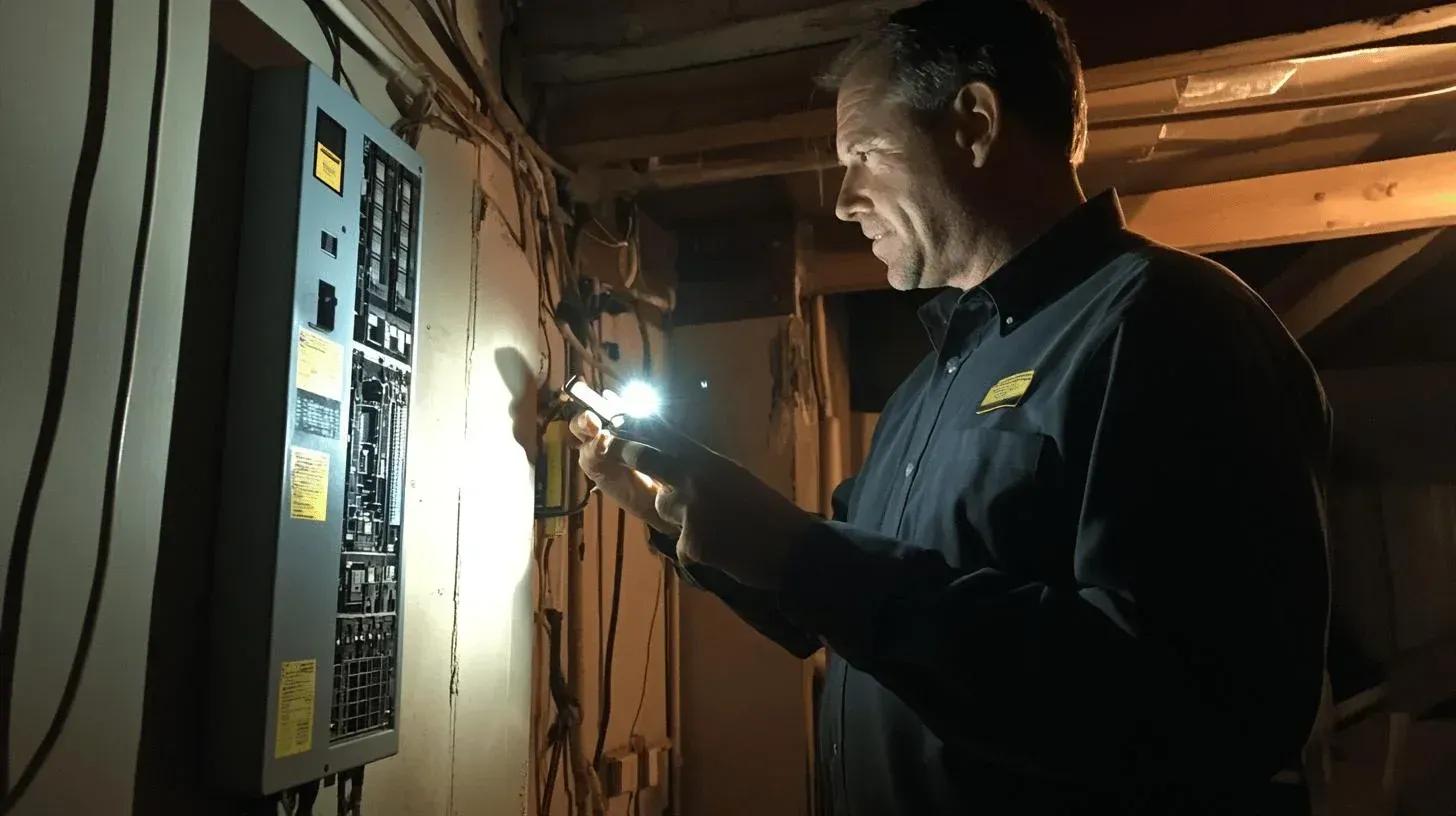
Home inspections ensure adherence to current home safety standards. Inspectors check for any safety concerns endangering occupants. They assess key structural systems not obvious in typical viewings. By raising hazard awareness, inspections prevent accidents, securing the environment and investment value.
A thorough inspection addresses hazards such as electrical faults, gas leaks, and harmful substances like radon and carbon monoxide. Inspectors, using their expertise, can detect mold infestations posing health risks if untreated. Identifying threats early allows homeowners to take action, creating a safer living space. Finding hazards is essential to keeping the property safe.
Knowing a home is safe offers enormous peace of mind. Having addressed potential hazards and meeting safety standards, homeowners feel secure about unforeseen issues. This peace supports both immediate safety and long-term investment value. Homeowners can enjoy their space, confident it has been thoroughly inspected for safety.
Financial Advantages of Home Inspections
How do home inspections save money? By spotting issues before they become serious, inspections offer significant cost-saving benefits. Repairing minor issues like a leaky pipe is more affordable than dealing with severe damage later. Inspection-informed actions help homeowners avoid surprise expenses, securing their investment.
How does negotiation fit into buying a home? A detailed inspection report offers negotiating power for buyers. If inspectors find defects, buyers can ask sellers to fix or lower the price. This process can lead to major savings, making purchases more economical. Inspection reports provide clarity, enabling informed decisions and better deals.
Inspection Benefits:
- Identifying maintenance needs
- Avoiding unexpected repairs
- Enhancing resale value
- Strengthening bargaining position
- Preventing major system failures
- Ensuring longevity
How do inspections affect home insurance? Findings can influence insurance policies. Insurers use inspection results to determine coverage and premiums. Homes in good condition may qualify for lower premiums due to lower risk. Inspections help secure a better purchase price and favorable insurance terms, offering long-term financial benefits.
Home Inspections for Maintenance and Planning

How do inspection reports assist with maintenance planning? Detailed reports are crucial for managing property upkeep. These reports provide a comprehensive look at the home's condition, helping prioritize repairs and schedule maintenance. This proactive method extends components' lifespan and reduces expensive future failures. Addressing minor issues early is a big benefit of thorough inspections.
Focus Areas:
- Roof condition assessment
- HVAC system efficiency
- Plumbing and water systems
- Electrical system safety
How do inspections influence budgeting for repairs? Clear insights into home systems help allocate funds wisely. Knowing which areas need immediate attention and which can wait aids in creating realistic budgets for maintenance. This preparation prevents financial surprises, helping homeowners plan long-term investments. Comprehensive inspections protect home value and ensure manageable upkeep.
The Role of Certified Inspectors in Home Inspections
Why hire a certified inspector? Certified inspectors offer expertise and reliability for thorough evaluations. Their credentials, like CMI® (Certified Master Inspector) or IAC2 (International Association of Certified Indoor Air Consultants), help identify unseen issues. This professionalism is key in providing accurate assessments affecting buying decisions. Certified inspectors safeguard investments, enhancing safety and value.
Recognized Credentials:
- CMI® (Certified Master Inspector)
- IAC2 (International Association of Certified Indoor Air Consultants)
- ASHI (American Society of Home Inspectors)
How does the inspection process accommodate buyers? The process is simple, with flexible scheduling, making it convenient. Certified inspectors adjust to buyers' schedules, ensuring inspections don't disrupt the buying process. Comprehensive reports delivered quickly enhance the buying experience, providing confidence and clarity in investment decisions.
Final Words
Exploring the structural integrity and safety aspects of a home, inspections play a pivotal role in identifying potential issues early. From foundation cracks to unseen electrical faults, they help detect hidden damage that untrained eyes might miss, highlighting the benefits of a thorough home inspection.
Financially, these inspections offer negotiation leverage, protect investments, and improve insurance terms by providing detailed property assessments. Certified inspectors bring crucial expertise, ensuring accuracy and reliability in evaluations. They facilitate maintenance planning by outlining future repair costs and priority tasks.
Consistently conducting thorough home inspections ensures long-term safety, cost-efficiency, and satisfaction for property owners.
FAQ
Q: What is the main benefit of performing a home inspection?
A: The main benefit of performing a home inspection is uncovering potential structural issues and safety hazards, which can save substantial repair costs by addressing problems early before they escalate.
Q: What are the key benefits of inspection?
A: Key benefits of inspection include identifying structural integrity issues, ensuring safety standards are met, and providing financial advantages through potential negotiations and investment protection.
Q: What is the biggest red flag in a home inspection?
A: The biggest red flag in a home inspection is often major structural damage like foundation cracks or significant roof damage, which can indicate costly repairs and compromise overall safety.
Q: What are the advantages and disadvantages of a home inspection?
A: Advantages include early detection of problems, negotiation leverage, and improved safety. Disadvantages may involve inspection costs and potential deal delays due to identified issues.
